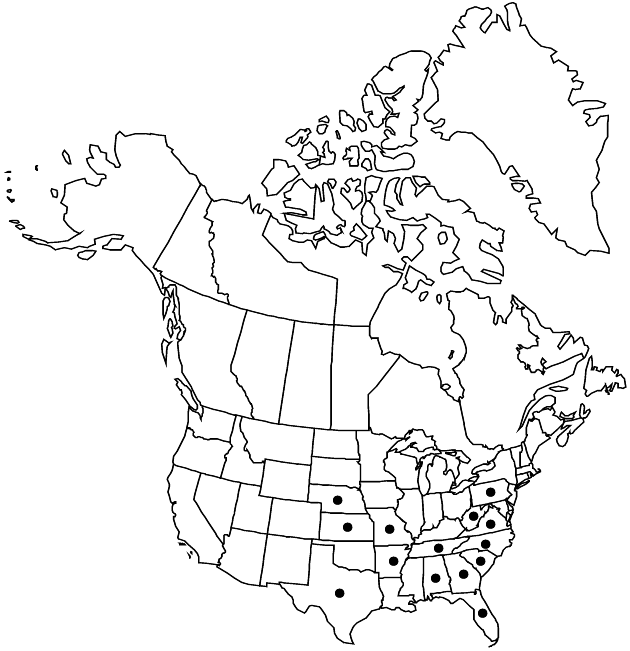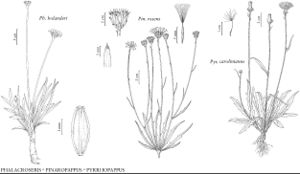Difference between revisions of "Pyrrhopappus carolinianus"
in A. P. de Candolle and A. L. P. P. de Candolle, Prodr. 7: 144. 1838.
FNA>Volume Importer |
imported>Volume Importer |
||
| Line 6: | Line 6: | ||
|place=7: 144. 1838 | |place=7: 144. 1838 | ||
|year=1838 | |year=1838 | ||
| + | }} | ||
| + | |special_status={{Treatment/ID/Special_status | ||
| + | |code=F | ||
| + | |label=Illustrated | ||
| + | }}{{Treatment/ID/Special_status | ||
| + | |code=E | ||
| + | |label=Endemic | ||
}} | }} | ||
|basionyms={{Treatment/ID/Basionym | |basionyms={{Treatment/ID/Basionym | ||
| Line 58: | Line 65: | ||
|publication title=in A. P. de Candolle and A. L. P. P. de Candolle, Prodr. | |publication title=in A. P. de Candolle and A. L. P. P. de Candolle, Prodr. | ||
|publication year=1838 | |publication year=1838 | ||
| − | |special status= | + | |special status=Illustrated;Endemic |
| − | |source xml=https:// | + | |source xml=https://bibilujan@bitbucket.org/aafc-mbb/fna-data-curation.git/src/bb6b7e3a7de7d3b7888a1ad48c7fd8f5c722d8d6/coarse_grained_fna_xml/V19-20-21/V19_611.xml |
|tribe=Asteraceae tribe Cichorieae | |tribe=Asteraceae tribe Cichorieae | ||
|genus=Pyrrhopappus | |genus=Pyrrhopappus | ||
Revision as of 20:39, 27 May 2020
Annuals (sometimes persisting), (5–)20–50(–100+) cm. Stems usually branching from bases and/or distally, rarely scapiform, usually glabrous proximally, sometimes pilosulous. Cauline leaves (1–)3–9+, proximal mostly lanceolate, margins usually dentate, sometimes pinnately lobed, distal narrowly lanceolate to lance-attenuate, margins entire or with 1–2 lobes near bases. Heads (1–)3–5+ in loose, corymbiform arrays. Calyculi: bractlets 13–16+ in 2–3 series, subulate to filiform, 8–12+ mm. Involucres ± cylindric to campanulate, 17–24+ mm. Phyllaries 16–21+. Florets 50–150+; anthers 2.5–3.5 mm (pollen equatorial diameters mostly 43–47 µm). Cypselae: bodies reddish brown, 4–6 mm, beaks 8–10 mm; pappi 7–10+ mm. 2n = 12.
Phenology: Flowering (Feb–)May–Jun(–Sep).
Habitat: Disturbed sites, edges of woods, prairies, sandy soils
Elevation: 10–600 m
Distribution

Ala., Ark., Fla., Ga., Kans., Mo., Nebr., N.C., Pa., S.C., Tenn., Tex., Va., W.Va.
Discussion
Selected References
None.
